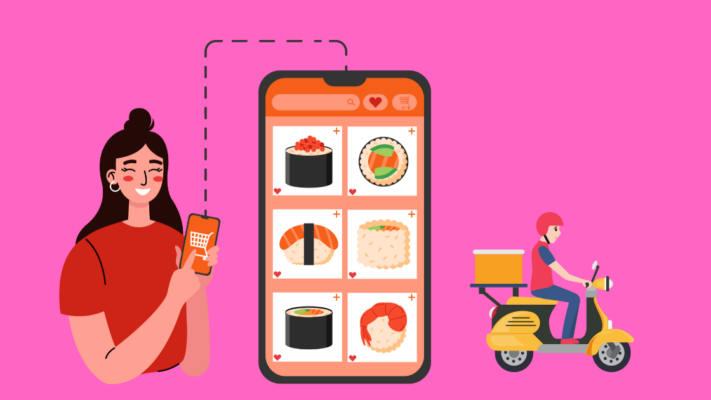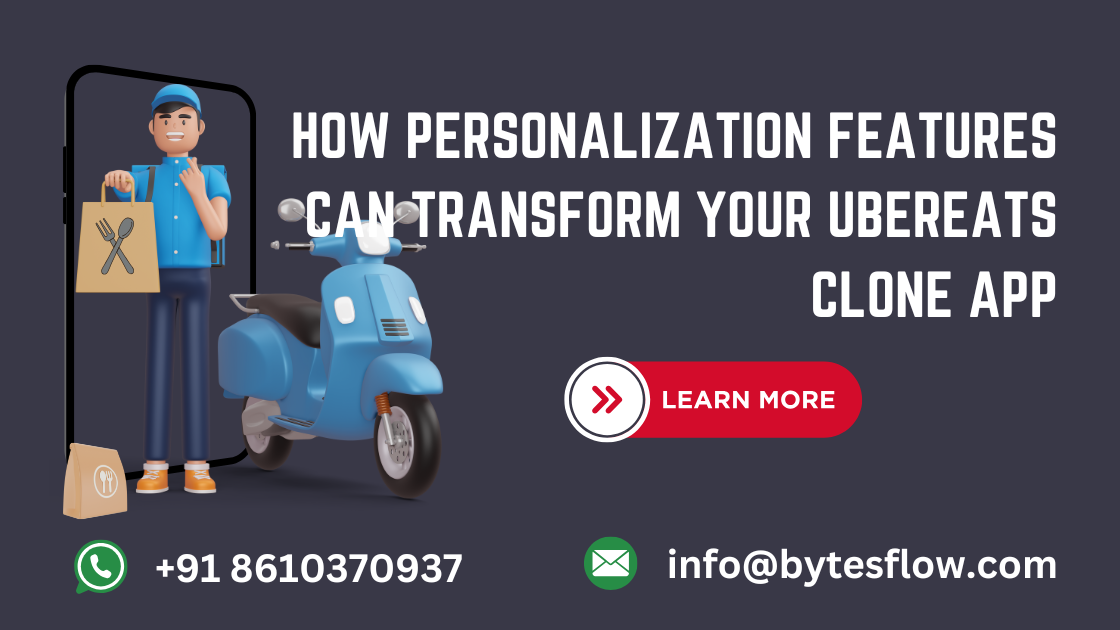UberEats Clone App Development with Personalization
Personalized UberEats clone app development has become a game-changer in the competitive world of food delivery. Customers today expect tailored experiences, whether it’s recommendations based on their preferences or a user-friendly interface that aligns with their tastes. Developing an UberEats clone app with personalization features allows businesses to cater to this demand, creating a seamless, engaging, and customer-centric food delivery platform.
What is Personalization in Food Delivery Apps?
Personalization refers to customizing the app experience for individual users based on their behavior, preferences, and habits. For example, a customer who frequently orders vegan meals could see tailored suggestions for vegan restaurants or exclusive deals on their favorite cuisine.
Why Include Personalization in Your UberEats Clone App Development?
- Enhanced User Experience: Personalized features create a smooth and engaging customer journey, making users feel valued.
- Higher Retention Rates: Customers are more likely to return to a platform that remembers their preferences and suggests relevant options.
- Increased Revenue: Personalized recommendations can boost sales by encouraging customers to try new items or add extras to their orders.
- Competitive Edge: With personalization, your app stands out in a crowded market, positioning itself as modern and customer-focused.
Key Personalization Features to Include in Your UberEats Clone App Development

1. Customized Food Recommendations
Utilize AI algorithms in UberEats Clone App Development to suggest dishes based on users’ order history, location, and browsing behavior. For instance, spicy dishes can be shown to users who prefer them or can be recommended as trending cuisines.
2. Favorites and Reordering
Allow users to save their favorite meals and restaurants. Provide a quick option to reorder past purchases with a single click.
3. Location-Based Suggestions
Personalize restaurant options and offers based on the user’s location to ensure they get the most relevant delivery options.
4. Dietary Filters
Let users filter restaurants or meals by dietary preferences such as vegetarian, gluten-free, or keto. This creates an inclusive experience for diverse customer needs.
5. Personalized Notifications
Send tailored push notifications with offers, reminders, or updates relevant to the user’s interests.
6. Customizable User Profiles
Allow users to update their preferences, such as favorite cuisines, allergens, or delivery timing preferences, for a more relevant experience.
7. In-App Rewards and Loyalty Programs
During your UberEats Clone App Development, create reward systems tailored to user behavior. For example, frequent buyers of coffee could earn loyalty points at cafes.
Benefits of a Personalization-Driven UberEats Clone App Development
1. Improved Customer Satisfaction
Customers appreciate the effort when an app understands and caters to their unique needs.
2. Better Engagement Metrics
Tailored features lead to more time spent on the app, higher interaction rates, and a stronger connection between the brand and the user.
3. Scalability for Business Growth
Personalization in UberEats Clone App Development opens doors for advanced analytics and AI-driven insights, which can help improve operations and predict trends.
Technology Behind Personalization in UberEats Clone App Development
To implement effective personalization in your UberEats clone app, you’ll need the right tech stack:
- AI and Machine Learning: For predictive analytics and recommendation engines.
- Big Data: To analyze user behavior and preferences.
- Geo-Location Services: For location-based personalization.
- Cloud Infrastructure: To handle large amounts of data seamlessly.
- APIs and Integration: To integrate third-party services like payment gateways, review systems, and loyalty programs.
How to Get Started?
UberEats clone app development with personalization features involves:
1. Understanding Your Target Audience
Analyze the preferences and habits of your potential customers to identify the personalization features they’ll value the most.
2. Choosing the Right Development Partner
Partner with an experienced UberEats clone app development company like Bytesflow Technologies that specializes in food delivery solutions. Look for expertise in AI integration and scalability.
3. Testing and Feedback
Roll out the UberEats clone app in stages and gather user feedback. This helps in fine-tuning the personalization features for better performance.
4. Continuous Updates
Personalization in UberEats Clone App Development is an ongoing process. Use analytics to update the app regularly and introduce new features based on emerging trends.
Final Thoughts: Personalization in UberEats Clone App Development
The personalization feature in your UberEats clone app not only elevates the customer experience but also drives business growth. By offering tailored solutions, you can create a loyal customer base and outshine competitors.
So, if you’re planning to enter the food delivery market with a superior food delivery script, now is the time to invest in a personalization-driven app. It’s not just about delivering food anymore—it’s about delivering experiences!
Aparna Babukuttan is a content writer at Bytesflow Technologies who writes with passion and emotions. She has a keen interest in exploring the latest technologies and has years of experience in writing for artificial intelligence and Web3 including blockchain, NFT, metaverse, and cryptocurrency. Beyond Blockchain, Aparna also lends her expertise to crafting captivating narratives for on-demand food delivery businesses.

